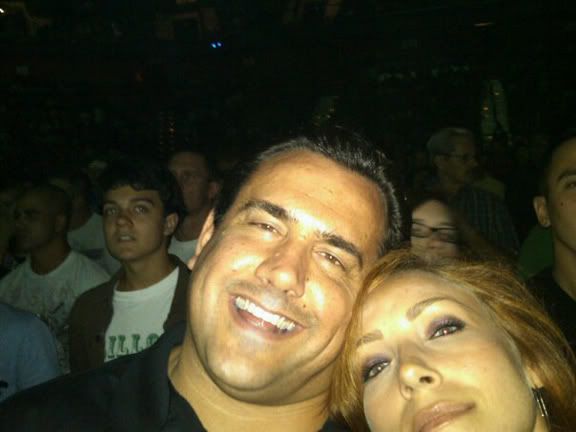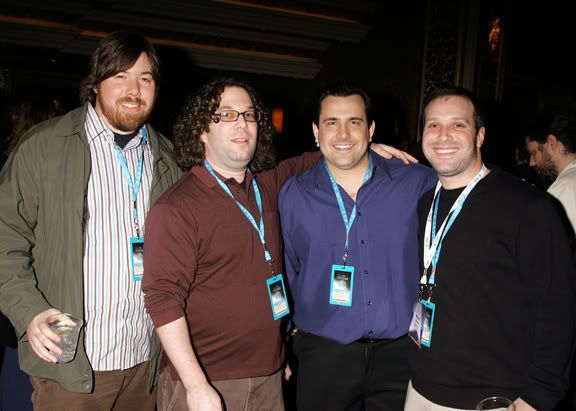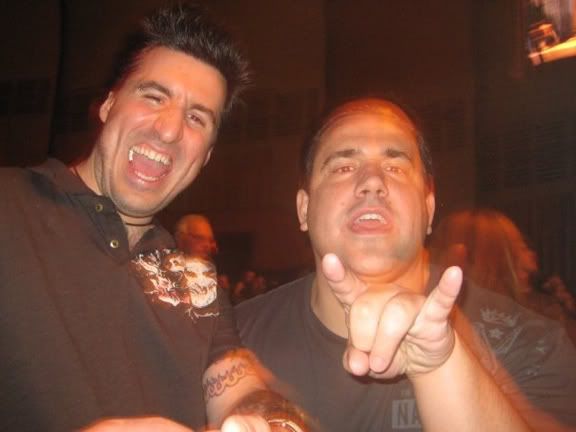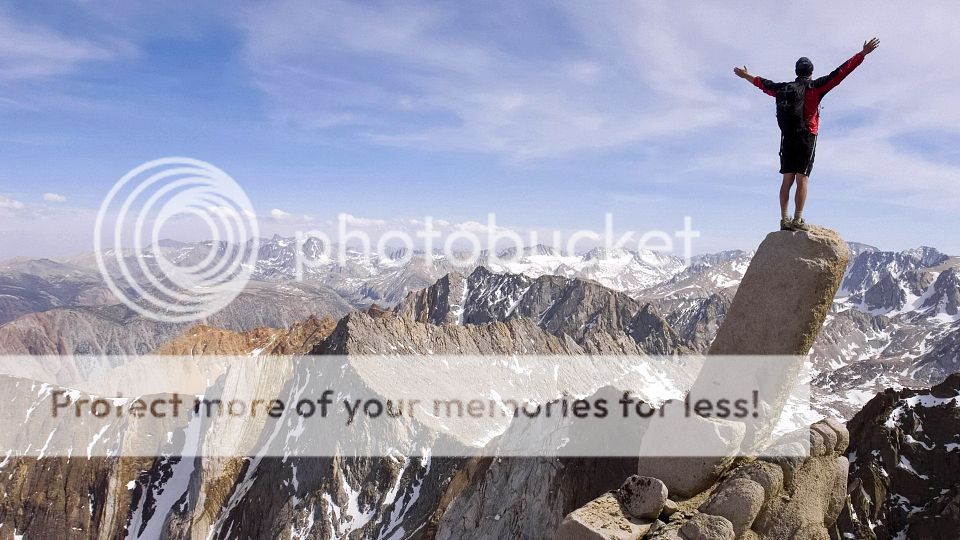HOW I GOT HERE - industry interviews by
Dave Paul
An inside look at people in the entertainment industry. From doormen, dj’s and promoters to venue owners, managers, and booking agents. In their own words find out how they got where they are, and where they are going.
MICHAEL MAIETTA of CEG PRESENTS
Interview conducted in 2015

l to r : Mike and Sarah
In the early 90s while attending Syracuse University, you worked at Creative Concerts producing concerts by the likes of Phish, Stanley Jordan, Joe Cocker, Bob Dylan, and Allman Brothers. How did you get that job?
While at Syracuse I bartended a few nights a week and the owner of that bar was also partners in a concert promotion company called Creative Concerts. So I showed interest and starting working with that company as well as the bar.
How did you meet Howie Schnee and form CEG?
I joined forces with Brett Radin who the day to day manager for a band called The Authority, NYC band that was blowing up in the same scene that yielded Spin Doctors, Blues Traveler. Brett was partners will Music Unlimited on managing the band. Music Unlimited was David Grahm's company, son of the famous Bill Grahm and Howie Schnee was working for that company. That is how I first met Howie.
In the beginning of CEG what do you think were some of the biggest obstacles as a "new" company?
Making money. Managing bands is not a very good way to make money we found out. Even with The Authority starting to do real numbers and make money, it was hard to make it work so we started to promote concerts as well to help pay the bills.

l to r : Iron Horse Entertainement's John Sanders, Top Artist Productions' Topper, Creative Entertainment Group's Mike Maietta and ArtistsArena's Mark Weiss
I know there's no standard, but what would you say the percentage should a promoter make from a show? Obviously if the show does poorly it's usually the promoter who takes the hit. But when a show does well, how much does a promoter make?
When you get to the big leagues it is pretty standard, 85/15 is standard deal. But in the club and smaller levels, it is the wild west. It is truly gambling. Sometimes we make a big bet and offer a band a flat guarantee that is more money than that band has ever made which makes it easier to do a flat deal. That is a way to make a lot of money as a promoter. A little more risk but much higher upside. Every situation is really different and thus all deals are not the same. I truly believe that if a promoter takes bigger risks, they deserve bigger rewards but at the same time, if there is little to no risk, the band should make most of the money.
That makes me think of an interview I was reading in Billboard with Randy Phillips of AEG. He said "If I believe enough in the commercial viability of an artist, why wouldn't I want to make a guarantee so I can make a bigger back end? It's the same amount of work, whether you make the guarantee of not." Monetarily what has been your best show, and worst show, and why do you think they ended up that way?
When gambling, whether it be betting on concerts or football games or anything, it is very important for you to have a short term memory. If you lose a lot of money you need to forget it very fast and not let it affect the way you go about making your next bet. That holds the same and ever more when you win big. Some people make a lot of money on a show and then start to get offer happy and start making bets that maybe they shouldn't but they do because they just had a big win. I really don't remember my worst loss on a concert but I know for sure it was not a huge loss, less than $10K for sure. And why did it happen? It's the same reason everytime…not enough people bought tickets…lol. I do shows in NYC so there is always 100 other things going on that same night as my show and sometimes it is just too much competition that night. Bad date I would say is one of the most popular reasons why a show would lose in NYC.
Most of concerts are on the east coast and I notice a lot of them are cover bands. It seems like over the past few years cover bands have really taken off. What are some of pros and cons within the process of booking these acts into venues?
Just to be clear, we don't promote any shows with cover bands, but we do a bunch of tribute shows. People like what they know is the bottom line so tributes are easy to market and people know what they are going to get.
You are right and thank you for correcting me in using the wrong terminology. I guess a cover band plays cover songs by various groups and a tribute acts presents the music of one artist and it actually is a "tribute." Who are some of the tribute acts that have blown you away?
I am of course a little biased with Badfish as I have made a lot of money managing that band, but they are pretty amazing at performing a Sublime show. But those guys don't impersonate. They do it their way, no dressing up etc. As far as the best tribute show, I have to say the band Almost Queeen is pretty amazing and so is U2 tribute Unforgetable Fire. You think it is really Freddie and Bono.

Badfish
You have done management in the past and currently manage Badfish, a Sublime tribute act that does massive touring. What do you think are some of the key steps that you and the band have taken to make them so successful?
Putting aside the obvious, that the band is very good at what they do and hard working, the main reason why Badfish has becomes a huge business is because the band works with promoters and club owners and gets into business with them, as opposed to the more common working relationship of band vs promoter. I think the way that happened is because a concert promoter is their manager.
Over the years marketing & promotions has changed a lot. Especially with Facebook, Twitter and online presence in general. What do you feel are the best ways to promote a show?
I will admit that I am way behind on the social network stuff. I do have a facebook account but I would say that I go on to that page maybe once every 6-8 weeks and when I do its usually to take out an ad to promote a show. Not that I am against it, I just don't have time. But they are all good ways to get the word out for sure as millions of people are doing it. The bottom line is that the best way to promote a band or show is word of mouth. When someone sees a show and is blown away and wants to tell everyone they know about this amazing thing they just saw. That is the best way to promote a show. All of these social networking outlets just made spreading that word a lot easier so that is for sure a great thing.
How far out do you start your promotions campaign for an event?
Very good question as I think the old model is just dead now. The old model being announce X weeks out, go on sale with big money being spent on the on sale for marketing and try to break big. That is still the best way for arena shows but not club shows. As soon as you can announce, get it up on the website and on sale. Why wait? The more time it is out there the higher the chances that someone will discover the show and want to come. The longer time someone can buy a ticket and then have more time to get more friends to come to the show with them.
I've noticed in NY a lot of the bigger clubs and venues do 2 different shows a night on the weekend. An early event and then a late (11-12 midnight) event? I've never come across this before. Is this unique to NY?
Rents for real estate in NYC are pretty crazy... unlike anywhere in the US I would think. So to make it work, you need to try and be open longer to cover the nut. I do a lot of shows at BB Kings in NYC and they do more shows that any club in the world I think. On Saturdays they do a brunch show,then a 6pm show , then a 10pm show and sometimes a 12am show, and that is just the main room. They also have the smaller room going as well. It is pretty crazy but the reason why is they are in Time Square in NYC, their rent has to be $250,000 per month.

l to r : Chis Zahn and Mike Maietta
Chris Zahn does a lot with you, how did you two meet and and what is his role?
Chris Zahn used to book The Wetlands and the first band I managed, The Authority, used to sell out the Wetlands as that was their home town gig. He does not have any official role at CEG, he is just our good friend. But if we ever have a show that needs something special/different, he is our go to guy. If you need a burlesque dancer that is 3 feet tall and can moon walk the length of the stage, if that exists, Zahn has booked it before... lol
________________________________________________

About the interviewer
Dave Paul began his music career in 1984, starting as a mobile dj and evolving into a prominent college radio dj, club dj, and remixer in San Francisco. In 1991 he launched the now legendary publication The Bomb Hip-Hop Magazine and in 1996 Paul transformed the magazine into a record label. The company was named "one of the fifteen independent labels that matter" according to Rolling Stone and the labels Return of the DJ series was ranked by Spin Magazine as #25 in their 90 Greatest Albums of the 90's list. Dave Paul has appeared on the front cover of Billboard magazine, and is featured in the motion picture Scratch. Mr. Paul has dj'ed throughout the US, toured Europe, released over 100 projects on his record label and currently produces themed dj parties including the 13 year running Prince and Michael Experience. If you feel you are qualified and would like to be interviewed you can contact Dave Paul at - bombhiphop@gmail.com
Already interviewed:
Robbie Kowal of SunsetSF (San Francisco) - INTERVIEW
Dave Paul of Bomb Hip-Hop (San Francisco) - INTERVIEW
Michael Krouse of Madrone Art Bar (San Francisco) - INTERVIEW
Mike Maietta of CEG Presents (New York) - INTERVIEW
Scheduled to be interviewed:
to be announced




